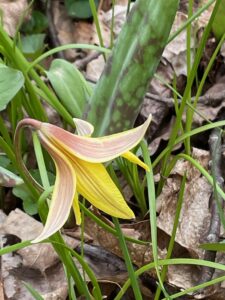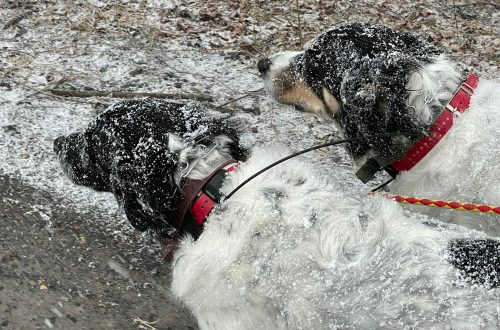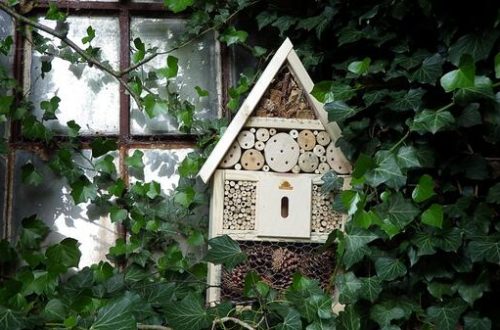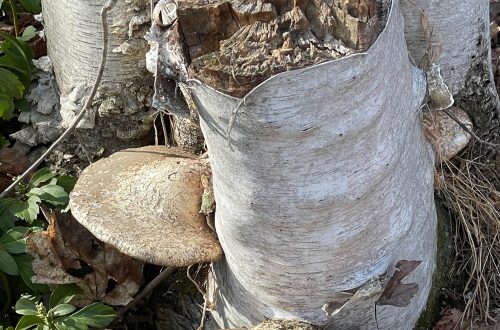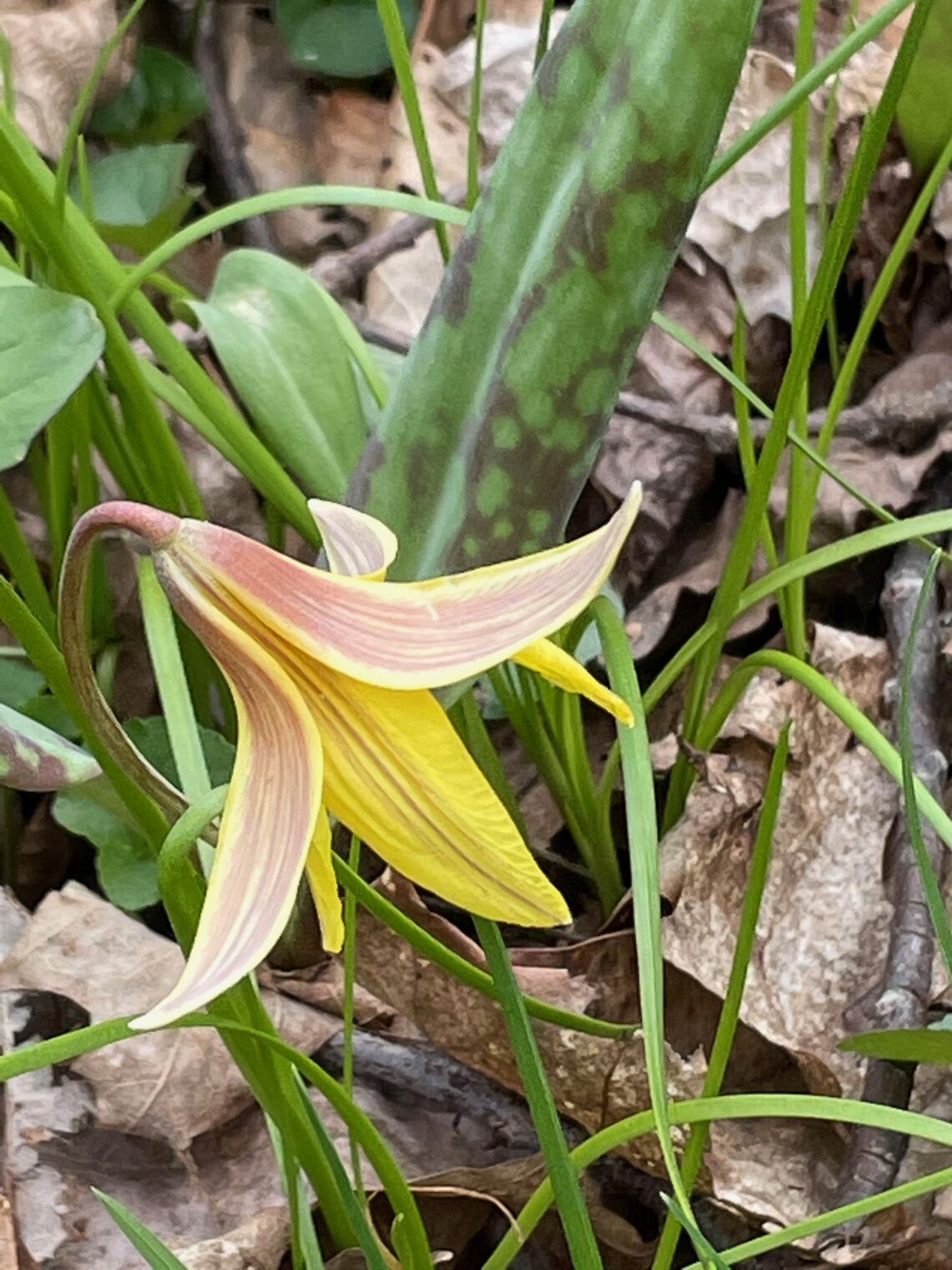
Coronavirus Tidbits #136 4/24/21
Quick links
News Diagnostics Drugs Devices Epidemiology/Infection control Tips Politics Feel good du jour Comic relief Perspective/Poem Bits of beauty
Announcements:
First, there is now a Resources Page here for the most commonly asked questions I’m getting.
Tidbits will likely be a bit shorter and a little less frequent for the next little bit.
Happy to continue to answer your questions/concerns as best I can, so don’t be shy about that.
~ ~ ~
New post:
Malaria Resistant to Artemisinin Emerging in Africa for first time
https://www.medscape.com/viewarticle/949687
News
US denies India’s request to lift an export ban on raw materials needed to make COVID-19 vaccines!
I believe this to be morally corrupt. It also flies in the face of everything the US has been saying about cooperation and pandemic preparedness. With China supplying most of the APIs (active pharmaceutical ingredients) for the world, and India supplying ~50% of the US’s generic medicine, this also seems colossally short-sighted and NOT in US’ self -interest. What are they thinking?
Under some law from the previous regime, the US is not allowed to export the AstraZeneca vax to India either.
~ ~ ~
COVID vaccines and blood clots: five key questions
As safety concerns delay the use of two COVID-19 vaccines, Nature looks at the questions that scientists want answered.
It has been a difficult week for two COVID-19 vaccines. On 13 April, US regulators urged health-care providers to temporarily stop using a vaccine made by Johnson & Johnson (J&J) of New Brunswick, New Jersey, because of 6 suspected cases of unusual blood clotting among nearly 7 million vaccine recipients.
The move came after European regulators expressed concerns about a possible link between rare blood clots and the Oxford–AstraZeneca vaccine, developed in the United Kingdom by AstraZeneca in Cambridge and the University of Oxford.
Both decisions are having a global impact. Although researchers and regulators stress that the benefits of the vaccines outweigh the risks, several countries are restricting the use of the AstraZeneca vaccine to certain age groups, and Denmark has opted out of using it altogether. J&J, meanwhile, has paused distribution of its vaccine to some countries….
Here are some of the key questions that they are hoping to answer.
https://www.nature.com/articles/d41586-021-00998-w
Diagnostics:
still an incredible, negligent last of testing.
Drugs and Vaccines:
Risk of breakthrough infection after vax is small, but beware of variants
- In the CDC’s Morbidity and Mortality Weekly Report, health officials described 22 “breakthrough” infections diagnosed among nearly 15,000 Chicago-area nursing home residents and staff two weeks or more after they received a second mRNA COVID vaccine dose
- At one Kentucky nursing home, 22 out of 127 residents and staff developed infections at least two weeks after their second mRNA vaccine dose, with virus sequencing indicating an unusual variant was responsible, according to a separate MMWR report
- And among 417 employees and students at Rockefeller University in New York City receiving two mRNA vaccine doses, researchers identified two breakthrough infections — notable mainly for the particular virus strains involved, as reported in the New England Journal of Medicine
https://www.medpagetoday.com/infectiousdisease/covid19vaccine/92204?
~ ~ ~
Studies suggest people with blood cancers (CLL and multiple myeloma) may may have reduced efficacy and not be optimally protected after COVID-19 vaccination
https://www.eurekalert.org/pub_releases/2021-04/asoh-ssp041521.php
Devices:
Masking:
CHUCK TODD: “Why does a vaccinated person have to wear a mask?"
— Daily Caller (@DailyCaller) April 18, 2021
DR. FAUCI: "You dramatically diminish" possible Covid infection with a vaccine, but vaccinated people could still carry infection.”
pic.twitter.com/2Cqt5K68qM
Epidemiology/Infection control:
I beg to disagree with CDC on this — there are nuances that they ignore. For example vaccinated immunocompromised may not have a good immune response.
And we don’t know what the impact of variants will be nor how protective vaccines are likely to be w some of the variants.
If you are fully vaccinated against #COVID19, you can start doing some things again, like gathering indoors with other fully vaccinated people without wearing masks. Learn more: https://t.co/FJMon7WlFO. pic.twitter.com/DslBMmrTno
— CDC (@CDCgov) April 21, 2021
~ ~ ~
White House to give CDC $1.7B to help find and track COVID-19 variants
The investment comes as cases of the new strains have multiplied in the U.S. over the past few months, leading to a major spike in cases in some states.
The money will go toward the Centers for Disease Control and Prevention (CDC) for equipment, supplies training and innovation for genomic sequencing to determine the spread of the variants.
The funding is from the American Rescue Plan Act, which included another $200 million to increase genomic sequencing to identify new cases, Slavitt said.
CDC Director Rochelle Walensky, M.D., said that the B.1.1.7 variant of COVID-19, which was first detected in the U.K., made up 44% of the virus cases circulating as of March 27.
She added that the figure is “certainly higher” now, and the agency expects to have more data soon.
Walensky said the seven-day average of cases is up to 69,000.
“Just four weeks ago, the seven-day average was only about 53,000 cases per day,” she added.
~ ~ ~
India is topping 300,000 cases each day now, running out of oxygen and basic supplies. Their massive COVID surge puzzles scientists
The virus is spreading faster than ever before in India despite previous high infection rates in megacities, which should have conferred some protection.
The pandemic is sweeping through India at a pace that has staggered scientists. Daily case numbers have exploded since early March: the government reported 273,810 new infections nationally on 18 April. High numbers in India have also helped drive global cases to a daily high of 854,855 in the past week, almost breaking a record set in January.
Just months earlier, antibody data had suggested that many people in cities such as Delhi and Chennai had already been infected, leading some researchers to conclude that the worst of the pandemic was over in the country.
Researchers in India are now trying to pinpoint what is behind the unprecedented surge, which could be due to an unfortunate confluence of factors, including the emergence of particularly infectious variants, a rise in unrestricted social interactions, and low vaccine coverage. Untangling the causes could be helpful to governments trying to suppress or prevent similar surges around the world.
European countries such as France and Germany are also currently experiencing large outbreaks relative to their size, and nations including Brazil and the United States are reporting high infection rates at around 70,000 a day. But India’s daily totals are now some of the highest ever recorded for any country, and are not far off a peak of 300,000 cases seen in the United States on 2 January.
https://www.nature.com/articles/d41586-021-01059-y?
~ ~ ~
Clear link emerges between COVID-19 and pregnancy complications
https://twitter.com/alvie_barr/status/1385033785096523777?s=20
~ ~ ~
Frightening: a single flight from Delhi to Hong Kong has so far led to 47 imported cases (& counting). All were required to do pre-departure testing and all were tested upon arrival. Yet, most of the cases were detected in hotel quarantine (most detected on day 12). https://t.co/EGEJMurNUR
— Dr. Karen Grépin (@KarenGrepin) April 18, 2021
Tips, general reading for public:
StayAtHome
Wash your hands.
Rinse and repeat.
Politics:
Plant Diseases and Pests Are Oft-Ignored Climate-Linked National Security Risks
When climate change is discussed as a national security issue, experts often cite food insecurity brought on by extreme weather events as an important contributor to the risk of political instability and other adverse outcomes. Indeed, the U.S. intelligence community’s 2021 Annual Threat Assessment, released last week, cites extreme weather, along with conflict and the Covid-19 pandemic, as key drivers of the current high levels of global food insecurity. Crop-damaging extreme weather events were a hallmark of 2020, with historic numbers of tropical storms, droughts, floods, and derechos across several continents.
Generally missing from such analyses, however, is discussion, or even a mention, of crop damages arising from agricultural pests or plant diseases, many of which are strongly linked to changing climate variables.
~ ~ ~
https://twitter.com/RainbowOfRed/status/1383531368232017922?s=20
~ ~ ~
AT&T, FedEx, Ford, Intel, JetBlue, Pfizer, and Toyota are all corporations who have restarted donations to politicians who voted to overturn the election. When we said corporate promises weren’t good enough, this is what we meant. https://t.co/hkZ1jJ0E4H
— Citizens for Ethics (@CREWcrew) April 18, 2021
~ ~ ~
Now in Florida:
— Tess Owen (@misstessowen) April 19, 2021
– A "riot" is now defined as a gathering with 3 or more people.
– If they're standing in the street and you feel scared, you can run over literal humans without worrying about a $$ civil lawsuit.
– Statues get legal protections.https://t.co/piMeiE9Mbh
~ ~ ~
It’s hard to imagine we’d have this verdict if not for Darnella Frazier, the 17-year-old girl who took out her cell phone and recorded Derek Chauvin killing George Floyd.
— Nathan McDermott (@natemcdermott) April 20, 2021
~ ~ ~
Perhaps this is the story that @TuckerCarlson was trying to get ahead of. In his college yearbook, he listed himself as a member of the "Dan White Society."
— Travis Akers (@travisakers) April 21, 2021
Dan White was the man who murdered Harvey Milk. pic.twitter.com/TYklyfC8tS
~ ~ ~
https://twitter.com/JoyAnnReid/status/1385289666987966469?s=20
Feel good du jour:
https://twitter.com/RexChapman/status/1355573369681440769?s=20
~ ~ ~
"My cousin’s final request at her funeral was backpacks full of supplies for needy students instead of flowers. A teacher to the end." From another poster pic.twitter.com/KgJ8c8AycO
— Sue Massa (@SueMassa256) April 18, 2021
Comic relief:
A dog ran onto the track during a high school relay race in Utah – and covered 100m in 10.5 seconds pic.twitter.com/pqe3qqACBC
— Guardian sport (@guardian_sport) April 22, 2021
~ ~ ~
Because you want to see a shelter puppy so happy to get adopted!!!
— Danny Deraney (@DannyDeraney) April 15, 2021
Credit: Imgur pic.twitter.com/kqlwIHAT0G
~ ~ ~

Perspective/Poem
We just paused an entire vaccine rollout because of a complication with a risk of 1 in 1 million.
— Dr. Taison Bell (@TaisonBell) April 15, 2021
For Black men, the lifetime risk of being killed by police is 1 in 1000.
Where is our pause? https://t.co/Rmm6Ue7NQj
~ ~ ~
Thread: Start here:
1/ The story of these gloves will tell you the kind of man Fritz Mondale was and why he meant so much to me. Please take the time to read this thread – and wait for it. Its worth it. pic.twitter.com/0rkPEWX1l2
— Joe Trippi (@JoeTrippi) April 20, 2021
~ ~ ~
This was an absolutely lovely theread, reading the responses
My 6 year old daughter painted this amazing scene at an after school art club.
— Gemma Leighton (@GemLeighton) April 21, 2021
Her art teacher told her she had done it wrong?!
You can't do art wrong!
She was so upset as art is her favourite thing to do.
Can you please show Edie some support and like her painting? pic.twitter.com/LV8rOgPwjc
Bits of beauty:
